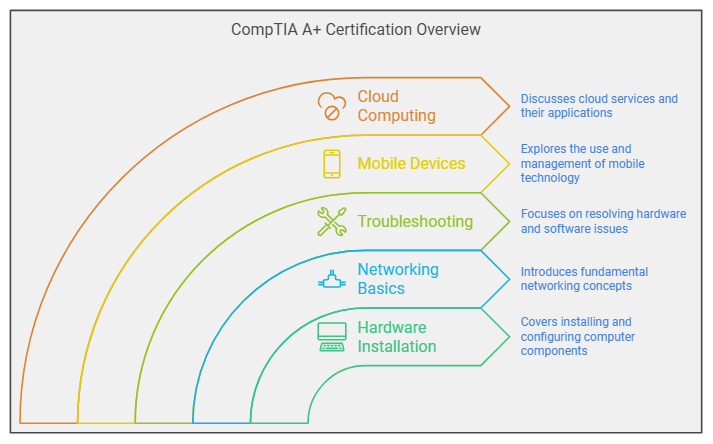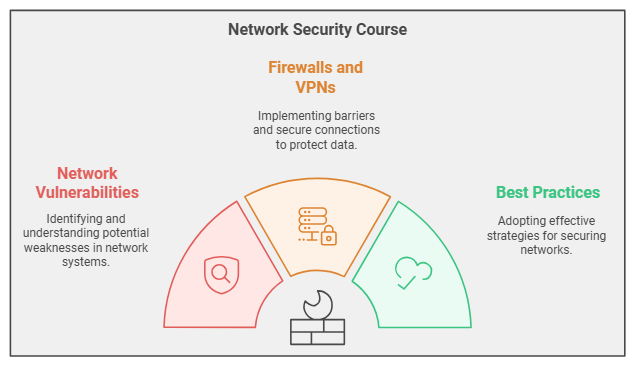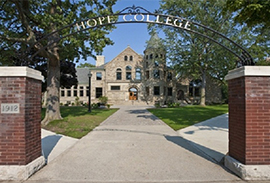In today’s hyper-connected world, hardware and networking skills are no longer optional—they’re essential. Every business, whether a small startup or a large enterprise, depends on reliable network infrastructure to ensure seamless communication, data exchange, and efficient operations. With the increasing reliance on technology, the demand for professionals skilled in setting up, managing, and troubleshooting hardware and network systems is skyrocketing. As organizations continue to adopt cloud computing, IoT (Internet of Things), and other advanced technologies, the need for experts who can design secure, scalable, and efficient networks has never been greater.
Below, we’ve compiled a list of the top 7 hardware networking courses for beginners that will set you on the path to a successful career in IT. These courses are carefully structured to cover everything from the fundamentals to more advanced concepts, ensuring you gain a comprehensive understanding of hardware and networking. Whether you’re looking to start fresh or expand your current skill set, these courses provide a structured, guided approach to learning that will help you reach your goals faster.
At Elysium Academy, we’re committed to not just teaching you the skills, but also helping you apply them in practical scenarios. With our experienced instructors, supportive learning environment, and state-of-the-art resources, you’ll have everything you need to succeed in your tech journey. So, let’s explore these courses and see how they can transform your career and set you on the path to becoming an IT expert.
Read on to discover the best hardware networking courses that will empower you to navigate the world of hardware and networking with confidence and skill!
1. Computer Hardware Fundamentals
If you are a complete beginner, this course is the perfect starting point. Understanding computer hardware basics is essential for anyone looking to get into IT. This course covers the fundamentals of computer hardware components, system assembly, and troubleshooting common hardware issues.
Course Highlights:
- Understanding motherboards, processors, RAM, and storage devices.
- Assembling and disassembling a PC.
- Diagnosing and repairing hardware issues.
Why It’s Beneficial:
A solid understanding of hardware is crucial for anyone pursuing a career in IT. This foundational hardware networking course prepares you for more advanced networking and system administration courses.
Checklist:
- ✅ Identify different computer components.
- ✅ Perform hardware troubleshooting.
- ✅ Assemble a complete PC system.
2. Networking Essentials
Networking Essentials is a beginner-friendly course designed to teach you the fundamentals of computer networking. You’ll learn how data is transmitted, the role of network devices, and how to set up a simple local area network (LAN).
Course Highlights:
- Understanding IP addressing and subnets.
- Configuring routers, switches, and access points.
- Introduction to network protocols like TCP/IP, DNS, and DHCP.
Why It’s Beneficial:
This course is a great starting point for anyone interested in networking. Hardware networking course provides you with the knowledge needed to move on to more specialized certifications like CCNA.
Checklist:
- ✅ Set up a basic LAN.
- ✅ Configure routers and switches.
- ✅ Understand network topologies and protocols.
3. CompTIA A+ Certification
The CompTIA A+ Certification is one of the most recognized entry-level IT certifications. This hardware networking course covers both hardware and networking fundamentals, making it ideal for beginners looking to start a career in tech support, system administration, or networking.
Course Highlights:
- Installing and configuring hardware, operating systems, and software.
- Networking basics, mobile devices, and cloud computing.
- Troubleshooting hardware and software issues.

Why It’s Beneficial:
CompTIA A+ is a gateway certification that opens up various entry-level IT roles. It’s highly regarded by employers and is a prerequisite for many other certifications.
Checklist:
- ✅ Master basic IT troubleshooting skills.
- ✅ Gain knowledge in both hardware and networking.
- ✅ Earn a globally recognized certification.
4. Cisco Certified Network Associate (CCNA)
The CCNA certification is one of the most respected networking credentials in the industry. It’s perfect for beginners who want to focus on network infrastructure and is a great stepping stone for more advanced Cisco certifications.
Course Highlights:
- Understanding routing and switching concepts.
- Configuring and managing Cisco routers and switches.
- Troubleshooting complex network issues.
Why It’s Beneficial:
A CCNA certification can significantly boost your career prospects, particularly if you’re interested in network engineering, IT security, or cloud infrastructure.
Checklist:
- ✅ Set up and configure Cisco routers and switches.
- ✅ Troubleshoot common networking issues.
- ✅ Prepare for advanced networking certifications.
5. Network Security Fundamentals
As businesses rely more on digital infrastructure, the need for network security experts is skyrocketing. This hardware networking course introduces you to the basics of securing a network, including firewalls, encryption, and intrusion detection systems.
Course Highlights:
- Understanding network vulnerabilities and threats.
- Implementing firewalls and VPNs.
- Learning best practices for securing wired and wireless networks.

Why It’s Beneficial:
Security skills are in high demand, making this a valuable course for anyone looking to specialize in cybersecurity or IT support roles.
Checklist:
- ✅ Identify and mitigate common network threats.
- ✅ Configure firewalls for optimal security.
- ✅ Secure wireless networks from potential breaches.
6. Windows Server Administration
Managing Windows Servers is a crucial skill for any IT professional working in enterprise environments. This hardware networking course covers installing, configuring, and managing Windows Server operating systems.
Course Highlights:
- Setting up Active Directory and Group Policy.
- Managing users, permissions, and file systems.
- Configuring network services like DNS, DHCP, and VPN.
Why It’s Beneficial:
This hardware networking course is ideal for those looking to work in system administration, especially in environments that use Microsoft products.
Checklist:
- ✅ Configure and manage Windows Server environments.
- ✅ Deploy and manage Active Directory services.
- ✅ Troubleshoot server-related issues.
7. Linux Network Administration
Linux is widely used in enterprise environments for its stability and security. This hardware networking course teaches you how to configure and manage Linux servers, making it perfect for those interested in system administration and DevOps roles.
Course Highlights:
- Setting up Linux servers and networking.
- Managing users, groups, and permissions.
- Configuring network services like Apache, SSH, and FTP.
Why It’s Beneficial:
Learning Linux network administration can set you apart in the job market, as Linux skills are highly valued by employers in cloud computing, cybersecurity, and IT infrastructure roles.
Checklist:
- ✅ Install and configure Linux servers.
- ✅ Automate tasks using shell scripting.
- ✅ Secure Linux systems from external threats.
This is where Elysium Academy comes into play. Our comprehensive hardware networking course training programs are designed to equip you with the knowledge and hands-on experience needed to excel in hardware networking course. Unlike many other courses that focus solely on theory, we emphasize practical, real-world skills through labs, simulations, and projects. This means that by the time you complete our courses, you’ll be well-prepared to handle real network environments with confidence.
Our courses are also industry-recognized, providing certifications that employers value. These certifications not only validate your skills but also demonstrate your commitment to continuous learning, which can give you an edge in a competitive job market. From mastering the basics of computer hardware to diving into complex networking configurations, our training ensures that you build a solid foundation that’s both relevant and up-to-date with industry standards.
Frequently Asked Questions (FAQs)
Q1: How long does it take to complete these hardware networking courses?
Most of these beginner courses can be completed within 2-4 months, depending on your schedule and commitment. Elysium Academy offers flexible learning options to fit your lifestyle.
Q2: Do I need prior experience to enroll in these courses?
No prior experience is necessary. These hardware networking courses are specifically designed for beginners with no background in hardware or networking.
Q3: Are the certifications recognized by employers?
Yes, certifications from courses like CompTIA A+ and CCNA are globally recognized and highly valued by employers, helping you secure better job opportunities.
Q4: Can I take these courses online?
Absolutely! Elysium Academy provides both online and in-person options, allowing you to learn from the comfort of your home or attend classes in a traditional setting.
Q5: What career paths can I pursue after completing these courses?
These courses can lead to various roles, such as network technician, IT support specialist, system administrator, or network security analyst.
Conclusion
Investing in hardware networking courses is undoubtedly one of the best decisions you can make if you’re aiming to build a rewarding career in the ever-evolving field of IT. With the increasing reliance on digital infrastructure across industries, professionals with strong hardware and networking skills are in high demand. These courses not only equip you with the technical expertise needed to set up, manage, and troubleshoot complex network systems, but they also prepare you to tackle real-world challenges with confidence. Whether you’re starting from scratch or looking to upgrade your current skill set, enrolling in these courses provides you with a solid foundation that can serve as a springboard for numerous career opportunities.
At Elysium Academy, we take pride in offering a comprehensive, hands-on learning experience that is designed to meet the needs of today’s tech landscape. Our hardware networking courses are carefully crafted by industry experts to ensure that you not only learn the theoretical concepts but also gain practical, real-world skills through labs and projects. By earning industry-recognized certifications, such as CompTIA A+ or Cisco’s CCNA, you significantly boost your resume, making you an attractive candidate for employers who are actively seeking skilled IT professionals.
Don’t miss out on this opportunity to shape a brighter, tech-savvy future for yourself. The demand for skilled hardware and networking professionals is on the rise – seize the moment, take that first step to learn hardware networking course, and watch your career soar!












